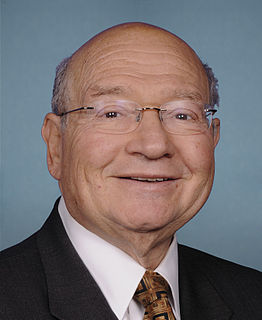A Quote by Stephanie Herseth
I did look for compromise. I worked in a bipartisan way.
Quote Topics
Related Quotes
Senator McCain is all for John Kerry. Do you know they're buddies? McCain is in favor of Kerry being secretary of state. Somebody the other day suggested, maybe it was just today, a bipartisan compromise and nominate Colin Powell to be secretary of state again. What would be bipartisan about that? He's not a Republican.
When I say compromise I do not mean capitulation. When I say compromise I definitely do not mean what Jesus Christ meant when he offered us to turn our other cheek to our enemies. Compromise means, try to meet the other somewhere half-way. And, this can only happen if the other is willing to go half-way in order to meet you. That is the very strict line between compromise and capitulation.
We'll always romanticize the past. We did not have this great, glorious era where everything was bipartisan and everything worked, but there was room for bipartisanship. And there was room for government to be more functional. The country itself was forced by all the upheaval of the '90s to take sides, to chose one or the other.
You can compromise between good, better, and best, and you can compromise between bad and worse and terrible. But you can't compromise between good and evil. And now people look at the other side as a completely different kind of animal and say, 'They are taking the country down the road to purgatory.' It's complete intolerance.
You can compromise between good, better, and best, and you can compromise between bad and worse and terrible. But you can’t compromise between good and evil. And now people look at the other side as a completely different kind of animal and say, “They are taking the country down the road to purgatory.” It’s complete intolerance.
































